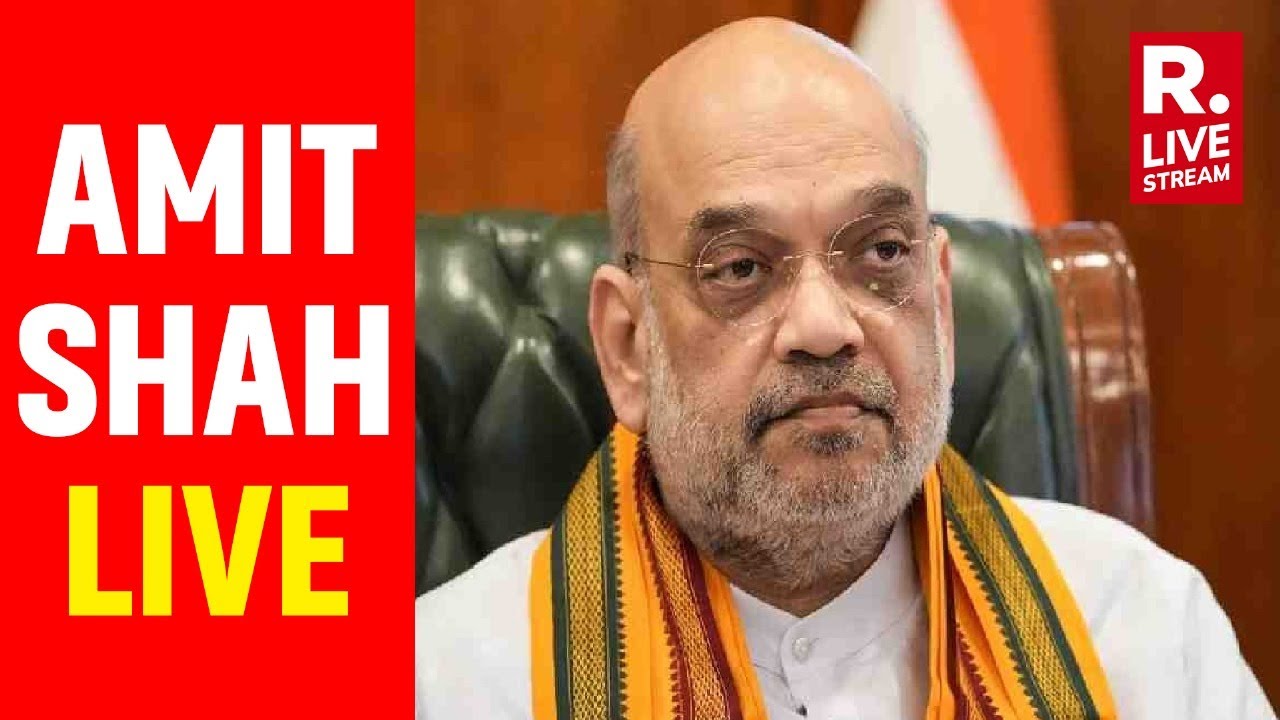


Amit Shah slammed Congress over reservation, Uniform Civil Code, and Muslim Personal Law during a debate on 75 years of the Constitution in Rajya Sabha. He questioned the delay in implementing UCC and accused Congress of introducing Muslim Personal Law instead. Shah also called for separation of religion and politics, urging all parties to not link patriotism with political ideology. He also criticized Congress for blaming EVMs instead of accepting defeat.
Amit Shah's Rajya Sabha Address: A Call for Uniformity, Separation, and Accountability
During a recent debate in the Rajya Sabha on the 75th anniversary of the Indian Constitution, Home Minister Amit Shah launched a scathing attack on the Congress party, raising questions about its stance on reservation, the Uniform Civil Code (UCC), and Muslim Personal Law.
Background:
The UCC has been a contentious issue in India for decades. It proposes a single civil code for all citizens, regardless of their religion or personal beliefs. Proponents argue that it would promote equality and prevent discrimination, while opponents contend that it would undermine cultural diversity and religious freedom.
Muslim Personal Law, on the other hand, governs matters such as marriage, divorce, and inheritance for Muslims in India. It is based on religious scriptures and traditions and is administered by Muslim clerics.
Shah's Allegations:
Shah accused the Congress of delaying the implementation of the UCC and instead introducing Muslim Personal Law. He argued that this created a divide within society and perpetuated the notion that religious identity was superior to national identity.
He further criticized Congress for blaming electronic voting machines (EVMs) for its electoral defeats, instead of acknowledging the will of the people. Shah urged all parties to separate religion from politics and not equate patriotism with political ideologies.
Response from Congress:
Congress leaders denied Shah's allegations and accused him of distorting history. They defended their party's record on reservation, claiming that it had played a crucial role in empowering marginalized communities.
On the issue of the UCC, Congress argued that it was not opposed to the concept but believed that it should be implemented only after thorough consultation and consensus.
Top 5 FAQs and Answers:
What is the Uniform Civil Code (UCC)? Answer: A UCC proposes a single civil code for all citizens, regardless of their religion or personal beliefs.
Why is the UCC controversial in India? Answer: Proponents argue that it would promote equality and prevent discrimination, while opponents contend that it would undermine cultural diversity and religious freedom.
What is Muslim Personal Law? Answer: Muslim Personal Law governs matters such as marriage, divorce, and inheritance for Muslims in India. It is based on religious scriptures and traditions and is administered by Muslim clerics.
Why did Amit Shah criticize the Congress over EVMs? Answer: Shah accused Congress of blaming EVMs for its electoral defeats, instead of acknowledging the will of the people.
What is the significance of Amit Shah's speech in the Rajya Sabha? Answer: Shah's speech highlighted the ongoing debate over the UCC, Muslim Personal Law, and the role of religion in Indian politics. It also underscored the importance of national unity and accountability in democratic processes.

During a public meeting in Bihar, Union Home Minister Amit Shah dismissed any speculation about leadership changes by firmly stating that there is "no seat vacant" in politics. Praising Chief Minister Nitish Kumar and Prime Minister Narendra Modi, Shah urged the people of Bihar to vote for the NDA in the upcoming assembly elections. He also addressed various issues such as the construction of the Ram Temple and the ban on PFI, while emphasizing the NDA's strong leadership in the state.

Union Home Minister Amit Shah expressed his confidence that the BJP will emerge victorious in the upcoming assembly elections in West Bengal. He also criticized Chief Minister Mamata Banerjee and the ruling TMC for their opposition towards the special revision exercise for the voter list. The minister defended the legitimacy of the process and supported the Election Commission, while the opposition claims it is a ploy to manipulate voter lists before the polls.

Union Home Minister Amit Shah criticised the opposition's manifesto promise of providing government jobs in Bihar if they come into power. Calling it "nonsensical", Shah stated that such a promise is absurd and the opposition knows they will never come to power and will not have to fulfil any promises made. He also pointed out that the opposition's manifesto ignores the development strides made in Bihar, such as electricity and clean water reaching every village.

In an exclusive interview with News18 India, Union Home Minister Amit Shah dismissed Rahul Gandhi's allegations of "vote chori" (vote theft) and assured the people of Bihar that the BJP will take action against every single infiltrator in the country. He also addressed concerns about Nitish Kumar's health and stated that the Bihar CM was holding four rallies a day, proving that there was no question of his health being in poor shape. Additionally, Shah criticized the opposition's attempt to create a negative perception about Nitish Kumar.

In a recent interview with News18 India's "Sabse Bada Dangal Bihar 2025", Union Home Minister Amit Shah confidently stated that the NDA will form a government with an unprecedented two-thirds majority in the upcoming Bihar assembly elections. Shah also vehemently denied any concerns raised by the opposition regarding the health of Chief Minister Nitish Kumar, stating that both he and Kumar are holding four rallies a day. This marks a major shift in the political equation in Bihar, as the BJP and JD(U) are contesting an equal number of seats, a first in the state's electoral history.

PM Modi delivered a speech at the Maritime Leaders' Conclave in Mumbai, praising the government's efforts in revolutionizing and modernizing the country's shipping sector. He emphasized the nation's ports as being among the most efficient in the developing world, declaring that India has made significant progress in this area.

Union Minister Dharmendra Pradhan, who is also the BJP's in-charge for the Bihar polls, has strongly criticized Congress leader Rahul Gandhi for his derogatory comments against PM Modi. Pradhan has demanded a public apology from Gandhi for his remarks, stating that they are against basic norms of public discourse. He further added that this reflects the Congress' deep-rooted resentment and frustration towards PM Modi and his leadership. Meanwhile, Rahul Gandhi has kicked off his poll campaign in Bihar with a scathing attack on PM Modi, accusing him of "enacting all types of drama" for votes and running the state through remote control.

Elon Musk's xAI has launched Grokipedia, an AI-powered online encyclopedia to rival Wikipedia. Musk aims for the platform to be a "massive improvement" and free from any political bias. While Grokipedia currently sources content from Wikipedia, Musk plans to have all original content by the end of the year. This development adds to Bihar's political landscape, where leaders like Lalu Prasad and Nitish Kumar have dominated with their OBC politics, while Nitish's developmental narrative has transformed the state's political landscape.

BJP leader Chandrashekhar Bawankule sparked controversy with his statement that party workers' phones and WhatsApp groups are being monitored ahead of local body elections. Shiv Sena leader Sanjay Raut demanded his arrest, alleging that the phones of several Opposition leaders were also tapped. Bawankule clarified his statement, but the Sena leader questioned the involvement of BJP offices and technology networks, calling it a potentially anti-national act.

The Election Commission (EC) has announced the schedule for Special Summary Revision (SIR) of electoral rolls in 12 states and Union Territories (UTs) for the year 2025, excluding Assam due to the ongoing National Register of Citizens (NRC) process. While the BJP has welcomed the announcement, the Congress has raised concerns and questioned the decision. The Chief Election Commissioner (CEC) has stated that Assam has a separate provision in citizenship laws and the NRC process must be taken into consideration, causing potential delays in the SIR preparations. Despite the physical closure of banks in Ranchi and Patna, financial services will remain available through digital and self-service platforms, so customers are advised to use online banking and plan any in-branch visits accordingly.